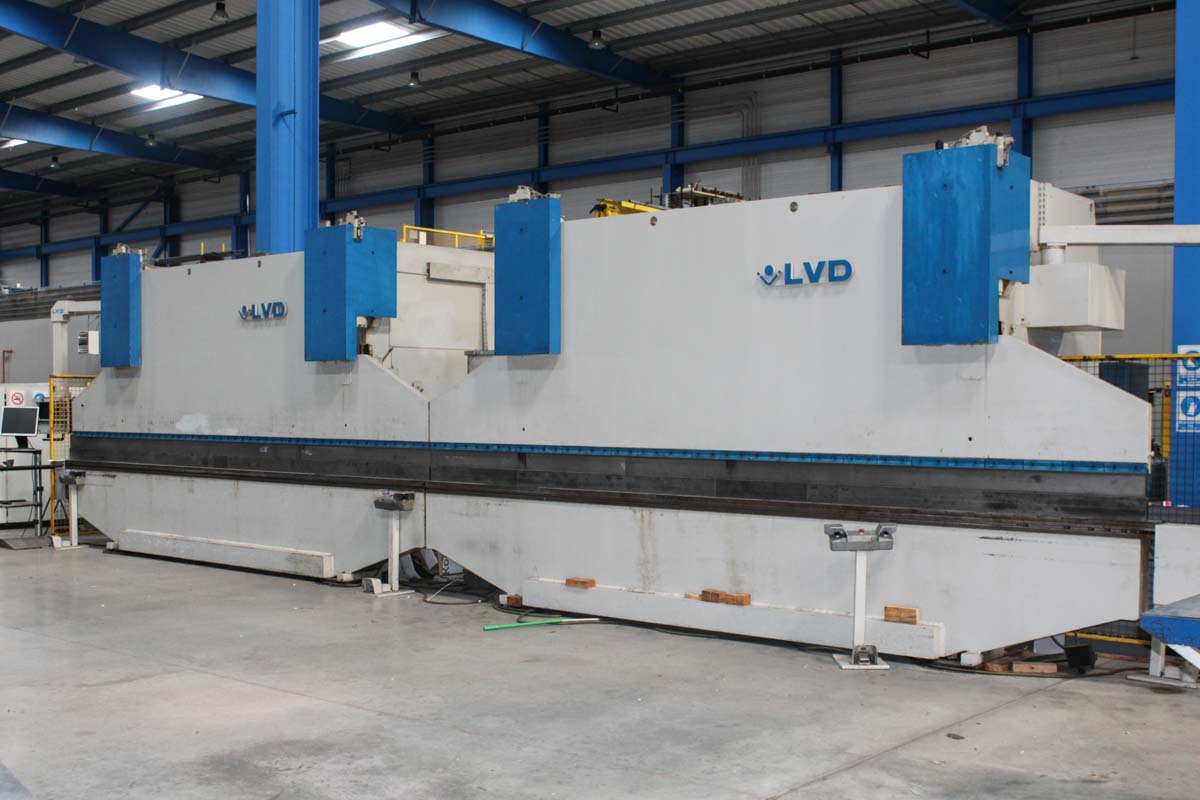The folding or bending of sheets is a process of forming without material removal and with deformation in which the sheet is bent until reaching a certain angle. For this, the press brake is used, where the sheet to be formed, located on the die, is deformed due to the impact produced by the punch, actuated by the mobile part of the folder.
In this type of operation, the internal part of the material undergoes a compression, while the external part undergoes a traction, establishing a gradation of tensions of one type or another, passing through a null value corresponding to the neutral line. This also causes a small thinning in the elbow of the bent sheet, an effect that is accentuated in the center of the sheet.
Press brakes offer great versatility, which will vary depending on the size of the sheet to be deformed; Some get to work with materials up to 20mm thick. In addition, the latest technologies allow some large folding machines to have the capacity to accommodate a large number of dies and make different consecutive folds.
Types of used folding machines
Manual folding machine
Simple, small-sized machine, whose use is limited to very thin sheets, from 20 gauge to 8 or 9, depending on the material (iron, aluminum or stainless steel). It is a highly efficient machine, with great energy savings and easy to move.
Mechanical folding machine
This type of machine introduces a flywheel that produces the energy to start the treadmill, which is where the punch is housed. A mechanical device connects the flywheel with the treadmill so that, when it is disengaged, the flywheel accumulates the inertia and thus, when coupled, allows the up and down movement of the treadmill. This stored inertia is the one used to create the tonnage necessary for the folding process.
Hydraulic Mechanical Folding Machine
This type of folding machine is very similar to the previous one but in this case the flywheel is replaced by a hydraulic pump, in charge of providing the necessary inertia to drive the trampler. This hydraulic pressure allows a hydraulic motor to drive an eccentric shaft, giving rise to the upward and downward movement of the treadmill and generating the power required for folding the sheet.
The main advantage of hydraulic-mechanical folding machines compared to mechanical folding machines is that the former do not need to complete a race to reach maximum tonnage, but that this can be achieved at any point in the race.
Hydraulic press brake
This type of machine is the most modern and effective. In this case, the folder uses a hydraulic pump and hydraulic cylinders to drive the trampler, which provides great accuracy, speed and efficiency that far exceed the performance of the other types of press brakes. In addition, these machines are CNC driven which is responsible for controlling the valve system capable of giving the trader great accuracy in the folding angles.
In Vanto Machines we have second-hand folding machines from the best and largest machine manufacturers in the world to work sheet metal. The folding machines provide excellent folding precision, with a wide range of capacities, from 40 to 2000Tn, and a working length from 1.6 to 10m. From conventional machines to multi-axis CNC machines, these press brakes can easily adapt to your specific needs.
From our company we can advise you on the machines that best suit your needs. In addition, we offer you a turnkey service.

